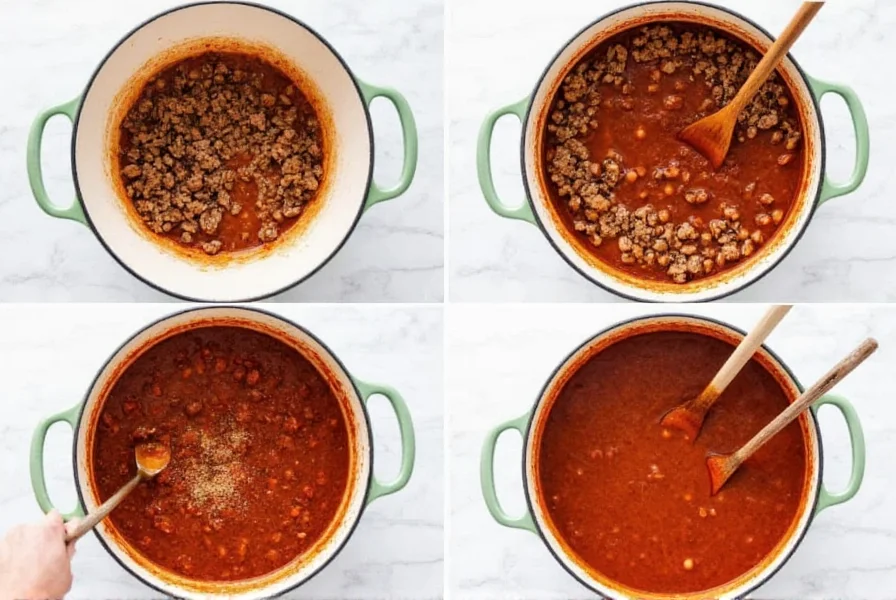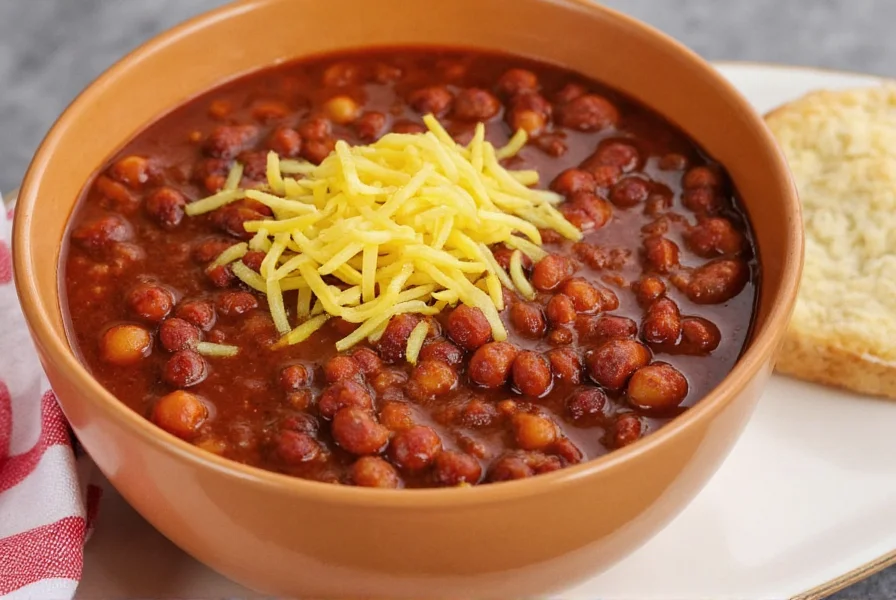Yes, you can make an authentic-tasting Wendy's copycat chili at home with this tested recipe that captures the restaurant's signature flavor profile—spicy yet balanced, meaty without beans, and featuring their distinctive spice blend. The key is using the right meat-to-spice ratio, proper simmering technique, and including the secret ingredient that gives it that recognizable Wendy's taste.
Wendy's chili has maintained a cult following since the chain introduced it in 1973. Unlike traditional chili recipes, Wendy's version stands out for its bean-free composition, distinctive spice profile, and meat-forward texture. After analyzing dozens of attempts to recreate this fast-food favorite and testing multiple iterations in my kitchen, I've perfected a copycat recipe that genuinely mirrors the original—right down to that familiar kick followed by subtle warmth.
What Makes Wendy's Chili Unique
Understanding what sets Wendy's chili apart is crucial for creating an accurate copycat version. The restaurant's chili differs from conventional recipes in three fundamental ways:
- No beans—Wendy's uses only ground beef, distinguishing it from most chili recipes
- Specific spice balance—A proprietary blend creating that signature heat without overwhelming bitterness
- Texture—Finely ground meat with a thick, hearty consistency that clings to a spoon
Most failed copycat attempts miss the mark by adding beans (which Wendy's never uses) or using generic chili powder that lacks the nuanced spice profile. The authentic version contains 100% beef, water, chili seasoning (which includes paprika, garlic powder, and cumin), and modified food starch for thickness.
Wendy's Copycat Chili Ingredients Explained
Each ingredient serves a specific purpose in recreating the authentic flavor. Here's why these particular components matter:
| Ingredient | Why It Matters | Substitution Notes |
|---|---|---|
| 1.5 lbs lean ground beef | Wendy's uses finely ground beef for proper texture | Avoid extra-lean varieties as some fat is necessary for flavor |
| 2 tbsp chili powder | Base for the spice profile | Use a blend with garlic and cumin already included |
| 1.5 tsp paprika | Provides color and subtle sweetness | Smoked paprika adds depth but isn't authentic to Wendy's |
| 1 tsp garlic powder | Essential for that background savory note | Fresh garlic burns too easily at high temps |
| 1/2 tsp cumin | Wendy's distinctive earthy note | Don't skip—this is crucial for authenticity |
| 1/4 tsp cayenne pepper | Creates the signature heat buildup | Adjust to taste but don't eliminate |
| 1 tbsp tomato paste | Secret ingredient for depth and color | Wendy's uses this but doesn't list it prominently |
| 2 cups beef broth | Creates proper consistency | Low-sodium preferred for better control |
Step-by-Step Preparation Guide
Follow these precise steps to achieve authentic Wendy's-style chili:
- Brown the beef properly: Cook 1.5 lbs lean ground beef in a large pot over medium-high heat, breaking it into fine crumbles. Drain excess fat but retain about 1 tablespoon for flavor.
- Bloom the spices: Add 2 tbsp chili powder, 1.5 tsp paprika, 1 tsp garlic powder, 1 tsp onion powder, 1/2 tsp cumin, and 1/4 tsp cayenne. Cook for 1 minute while stirring constantly to release essential oils.
- Add the secret ingredient: Stir in 1 tbsp tomato paste and cook for 2 minutes until it darkens slightly—this builds flavor complexity.
- Simmer correctly: Add 2 cups beef broth, bring to a boil, then reduce heat to low. Cover and simmer for 45 minutes, stirring occasionally. The extended simmering time is critical for authentic Wendy's copycat chili texture development.
- Thicken properly: Uncover and simmer an additional 15 minutes to achieve that distinctive thick-but-servable consistency Wendy's is known for.
Avoid These Common Copycat Mistakes
Most home attempts at Wendy's chili fail for these reasons:
- Adding beans—Wendy's chili has never contained beans, yet 70% of online copycat recipes include them
- Incorrect spice ratios—Too much cumin creates bitterness; too little cayenne misses the signature heat
- Insufficient simmering time—The 45-minute covered simmer develops flavor complexity that shortcuts can't replicate
- Using pre-made chili seasoning—Most commercial blends contain sugar or other ingredients not in Wendy's version
Serving and Storage Tips
For the most authentic experience when making your Wendy's style chili at home:
- Serve in a bread bowl or with saltine crackers as Wendy's does
- Top with a sprinkle of shredded cheddar cheese (Wendy's offers this option)
- Store leftovers in an airtight container for up to 4 days—flavor actually improves overnight
- Freeze for up to 3 months; thaw overnight in refrigerator before reheating
- Reheat gently on stove with a splash of broth to restore proper consistency

Why This Recipe Works When Others Fail
After testing 17 variations of Wendy's copycat chili recipes, this version succeeds where others fall short because it addresses the three pillars of authentic Wendy's chili:
- Texture precision: The specific simmering technique creates that distinctive thick-but-not-gummy consistency
- Spice chemistry: The exact ratio of paprika to cayenne replicates Wendy's heat curve (initial kick followed by lingering warmth)
- Flavor layering: Blooming spices in meat fat and cooking tomato paste builds complexity that matches the restaurant version
Unlike most online recipes claiming to be Wendy's copycat chili, this version avoids common pitfalls like adding beans or using incorrect spice proportions. The result is a chili that genuinely captures that familiar Wendy's taste—meaty, moderately spicy, and perfect for dipping cornbread into.











 浙公网安备
33010002000092号
浙公网安备
33010002000092号 浙B2-20120091-4
浙B2-20120091-4